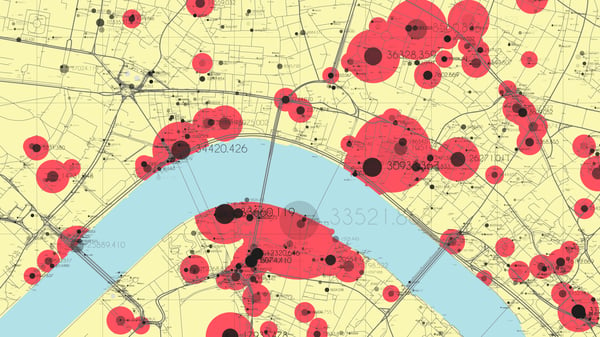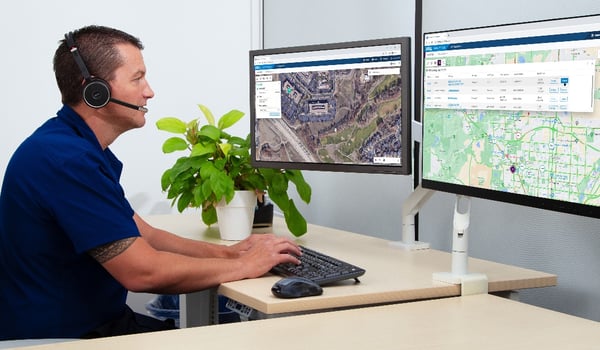4 Must-have Data Points for Dispatch-Billing Alignment and Maximum Reimbursement
5 Ways to Empower Millennials in the EMS Workforce
(6 min read) Co-Written by Logan Sullivan and Rabecca Sembrat We continue to see research showing that Millennials are the most educated generation entering the workforce, and to witness the impact that this has had on the EMS industry as a whole
Was this information valuable?

(6 min read) Co-Written by Logan Sullivan and Rabecca Sembrat
We continue to see research showing that Millennials are the most educated generation entering the workforce, and to witness the impact that this has had on the EMS industry as a whole. Today, most EMTs are entering the workforce with accreditation and degrees, which has increased the interaction and quality of work being done in the field. This level of education requires a more EMT-centric approach to training, including providing a path for growth within your agency and the industry as a whole. As Millennials begin to enter their mid-to-late 30’s and develop themselves in the industry, and as the longest-tenured medics begin to retire, it is important to realize Millennial EMTs are the future of your agency.

First off, who are Millennials? This generation is defined as anyone born between 1976 -2004, currently ranging in age from 22-37. Those born in this time frame have seen the world and industry change dramatically, with technology making leaps and bounds.
Millennials grew up in an electronics-filled, increasingly online and socially-networked world. They are the generation that has received the most marketing attention. As the most ethnically diverse generation, Millennials tend to be tolerant of difference. Having been raised under the mantra "follow your dreams" and being told they were special, they tend to be confident.
With the majority of older generations seeing these traits as faults, improving your agency’s understanding and mindset around your younger workforce can improve morale and retention.
As an EMS leader, what steps can you take to improve the enthusiasm, confidence and discipline of your Millennial team members? How do you empower them to do their best work, while leaving a positive lasting impression on both your agency and their coworkers?

5 ways to empower Millennials in your work force:
1. Be wary of putting words in the mouths of your younger team members.
Remember that old saying about assumptions? Your interpretation of a Millennial’s intentions aren’t necessarily accurate.
Having grown up surrounded by technology, learning and adapting to (as well as often initiating!) change comes naturally to this generation. The use of technology has become an extension of themselves. They aren’t ignoring you when they Google something in the middle of a conversation – utilizing phone and tablets to increase efficiency, multi-task and maintain prompt and high-quality professional (and personal) communication are integral to their way of being.
2. Make them feel heard.
With the constant access to information, the world has become smaller just as the ability to learn and grow has become bigger. The access to a wealth of information from an early age has empowered Millennials to ask the question “why” often and without hesitation. These questions can be misconstrued for insubordination. In reality, it’s the desire to improve and learn from a larger repository of information that propels them to question everything. Feed your team’s thirst for knowledge by providing a peek behind the curtain and including the larger team with updates on the future of the agency and their impact on the business.
3. Develop a feedback culture to foster retention and engagement.
This is a generation that truly values constant communication and craves feedback on their performance. Start by reinforcing how well your folks are doing. Develop a system for acknowledging high-performers. Conversely, make sure you are delivering constructive criticism to those team members who need a guiding hand. Be as transparent as you can be about business goals and current progress achieving KPIs.
An “open door policy” can go a long way towards making people feel involved, and like it’s okay to approach you with any issues, or suggestions for improvements. Open lines of communication increase understanding and can remove the unnecessary stressors of the workplace, fostering more direct and impactful conversations to help everyone at all levels improve. Displaying vulnerability and empathy is a main value trait of millennials that should be leveraged in a positive manner to improve overall morale.
4. Don’t undervalue the importance of emotional intelligence (EQ) verses IQ.
According to the University of New Hampshire psychology department, emotional intelligence is the "ability to validly reason with emotions and to use emotions to enhance thought." Emotional Quotient (EQ) refers to an individual's ability to perceive, control, evaluate, and express emotions. People with high EQ can manage emotions, use their emotions to facilitate thinking, understand emotional meanings and accurately perceive others' emotions. EQ is partially determined by how a person relates to others and maintains emotional control.
Millennials value both intellectual and emotional intelligence; leveraging these skills equally are important to make your team feel valued and understood. Emotional intelligence can also be leveraged to reduce or avoid burn out in our team by making difficult conversations about fatigue or stress easier to have.
5. Leverage new technology to improve efficiency.
Agencies are increasing efficiency by utilizing technology familiar to their young, tech savvy team members and streamlining day-to-day operations. Across the board, technology is transforming EMS from dispatch to discharge and opportunities for improving response times, pre-hospital care and health information exchange abound.
Who better to help drive the move to new technology within your organization than those members of a generation who have grown up with it? By embracing technology, EMS owners have increased morale and removed pain points across their organizations.

How ZOLL Relies on Millennials to Shape Future Product Development
Since Millennials are making up the majority of the workplace and effective communication is critical in EMS, gathering their input and feedback was crucial during the research and development phase of ZOLL Respond, their newest emergency mobile communication application. ZOLL not only had to learn the issues and roadblocks that were hindering effective communication from dispatch to field crews, but they had to learn how the crews preferred to communicate. This information along with recommendations and feedback from many ZOLL customers was compiled and analyzed by a committee of industry experts to help guide the app development.
“This product was developed with millennials in mind - the way they work, the way they think, the way they act. ZOLL took what the ground crew does on a daily basis and implemented it into the product - not forcing the crew to work within other product parameters, but developing this product specifically to how crews work.” – Will Rosenberg, Butler Medical Transport (Committee Member)
The results so far are positive. The app has been enthusiastically received by Millennial users, citing the walkie talkie-like ‘push to talk’ features as a favorite.
Related Posts
How EMS Agencies Can Reframe Need and Refocus Resources With Geospatial Analytics
How To Minimize Radio Chatter and Reduce Guesswork With Smarter Dispatch Resource Management
ZOLL Pulse Blog
Subscribe to our blog and receive quality content that makes your job as an EMS & fire, hospital, or AR professional easier.
ZOLL Pulse Blog
Subscribe to our blog and receive quality content that makes your job as an EMS, fire, hospital, or AR professional easier.





